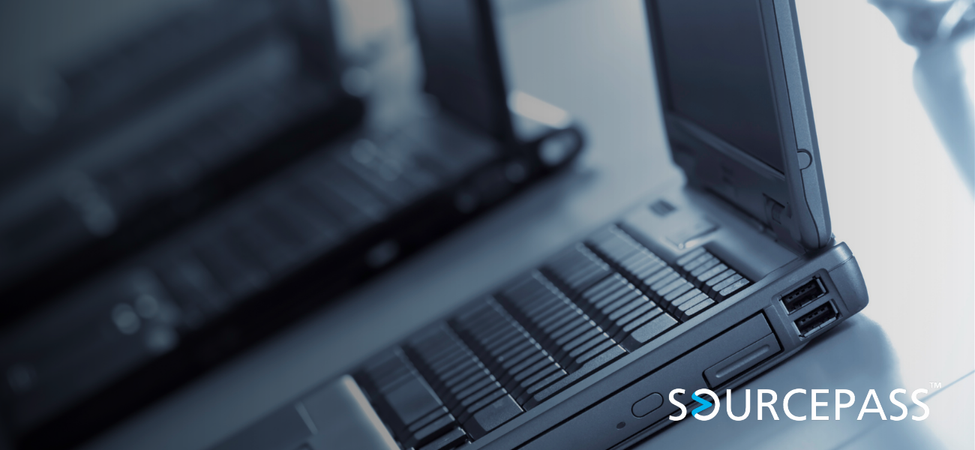Why Upgrading Outdated Hardware is Crucial for Your Business
Nov 05, 2024 Alex Davis 3 min read



In today’s modern digital world, your business relies heavily on the performance and reliability of its IT infrastructure. Having up-to-date hardware, as well as a plan to continually replace old hardware, is key to optimal business operations.
However, many orgs continue to use outdated hardware far past its lifecycle, unaware of the risks and hidden costs this presents. Even if you aren't noticing the slowdown of your hardware, the lack of updates, big fixes, and more can leave your organization open to major issues and potential downtime..
Regular hardware upgrades aren’t just about keeping up with the latest technology trends—they’re essential for the security, efficiency, and growth of your business.
Here’s why upgrading your outdated hardware should be a priority for your business:
1. Manage Your Hardware Lifecycle Effectively
Keeping your hardware up to date ensures you avoid unexpected breakdowns that lead to costly downtime. Older systems are more prone to failure and often don't have manufacturer fixes, resulting in unplanned repairs, business disruptions, and emergency replacements.
Additionally, hardware manufacturers eventually stop providing updates and support for older systems. Once your hardware reaches its "end-of-life" stage, you won’t be able to receive necessary patches or replacement parts, leaving your laptops vulnerable.
Solution: Planning regular hardware upgrades allows your business to stay ahead of avoidable issues, ensuring your systems continue to run smoothly without worrying about sudden failures and emergency fixes.
2. Boost Operational Performance and Productivity
Outdated hardware can seriously limit the performance of your business’s infrastructure, as your IT directly impacts your operations.
Newer systems offer faster processors, increased storage capacity, easier fixes, and better memory, allowing your employees to work faster and better.
Not only does old hardware slow down your operations, it can also struggle to run modern software and updated apps efficiently. With each software upgrade, the strain on your old systems increases, leading to slower processing times, frequent crashes, and more.
Solution: Upgrading your hardware ensures your business can keep up with the latest technology and integrated apps, enhancing performance and operational efficiency.
3. Strengthen Security and Industry Compliance
Cyber security and data protection are two of the most important reasons to upgrade outdated hardware. Older systems often can’t support the latest security protocols, making them easy targets for cyberattacks. Remember - the older the device, the more well-versed bad actors are in attacking it. This increases the risk of data breaches, ransomware attacks, and significant cost and loss.
For industries with strict compliance requirements (like healthcare, finance, and legal), using unsupported hardware can also lead to non-compliance with industry-specific regulations like HIPAA, PCI DSS, or GDPR, resulting in hefty fines and even legal or operational consequences.
Solution: Up-to-date hardware supports the latest security measures and helps your business stay compliant with industry regulations, protecting both your data and your public reputation.
4. Save Costs in the Long Run
While upgrading hardware may seem like a large upfront investment, it can save your business significant costs in the long term. As you may know, the average data breach costs $4 million, on average.
Newer systems are also more energy-efficient, reducing power costs over time. In addition, with predictable upgrade schedules, you can better manage your IT budget and avoid sudden financial strain by having a plan in place to continually upgrade your team's devices.
Solution: Investing in regular hardware upgrades prevents expensive downtime, reduces energy consumption, and gives you greater control over your long-term IT costs.
5. Prepare for Growth and Future-Proof Your Business
As your business grows, so will your IT needs. Outdated hardware can become a bottleneck, limiting your ability to scale operations, adopt new technologies, and meet increasing customer demands. Partnering with an MSP, like Sourcepass, allows you to have IT experts on-hand that grow with your business.
With advancements in technology, businesses need modern hardware to stay competitive. Whether it’s leveraging AI, big data analytics, or cloud-based systems, these innovations require updated infrastructure - including up-to-date hardware.
Solution: Upgrading your hardware equips your business to scale seamlessly and ensures you’re ready to adopt key technologies that drive growth and innovation.
How to Get Started with a Hardware Upgrade Plan
Not sure where to start? Here are a few steps to begin your upgrade journey:
- Assess Current Hardware and Replacement Cycles: Identify which systems are outdated, near the end of their lifecycle, or no longer supported by the manufacturer. It's also important to map out how often you'll need to assess hardware for upgrades.
- Plan a Phased Approach: You don’t have to upgrade every device at once. Start by focusing on the most critical hardware first and upgrade the rest over time.
- Budget for Future Upgrades: Work with your IT provider to create a predictable hardware upgrade schedule that fits your projected team growth.
- Get Expert Advice: Partnering with a Managed Service Provider like Sourcepass can help you design and implement an upgrade plan that minimizes disruption and ensures smooth transitions.
Hardware Upgrades & Procurement with Sourcepass
Keeping hardware up-to-date and operational is about more than just keeping up with the latest trends. It’s about ensuring your business remains secure, efficient, and primed for growth.
Ready to upgrade? Contact Sourcepass today to assess your current hardware and create a customized upgrade plan that keeps your business ahead of the curve.
Subscribe To
Sourcepass Insights
Sourcepass Insights
Stay in the loop and never miss out on the latest updates by subscribing to our newsletter today!


